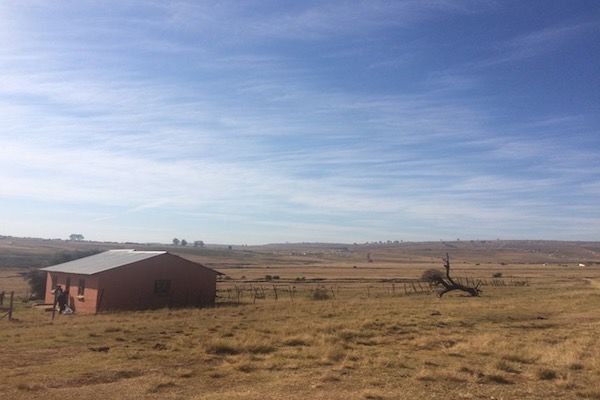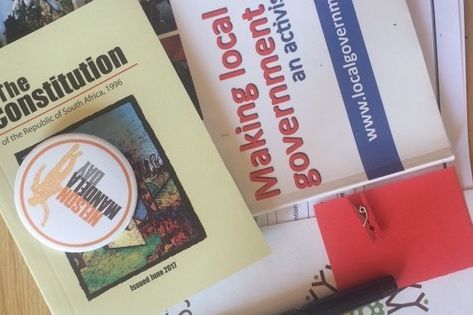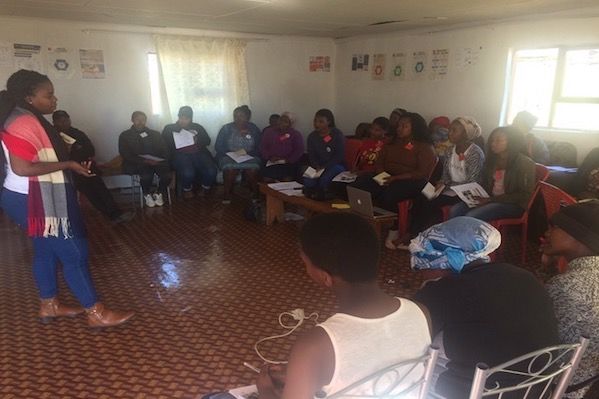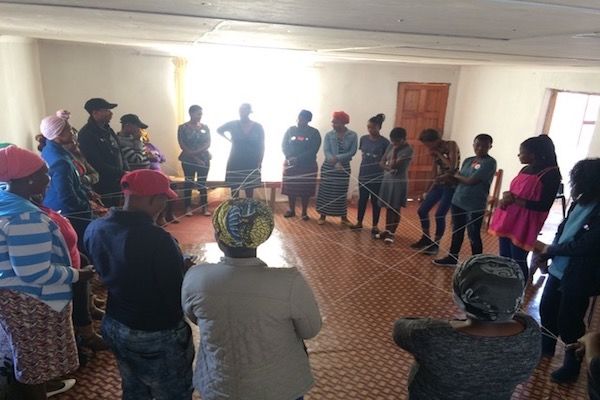Civics Academy and Activate will be running pilots of this workshop in different provinces and contextual settings (urban, rural and peri urban) in order to refine the programme. The aim is to develop a Youth Making Local Government Work Toolbox, which community leaders can use to train their constituencies on how to increase effective participation and engagement in local government issues. The first pilot took place in April in the urban setting of Retreat in the Western Cape. Please see https://southafrica.hss.de/news/news/youth-making-local-government-work-a-pilot-workshop-in-cape-town-news2777/ for more detail on this workshop. The second pilot was held in the rural area of Ngcobo in the Eastern Cape, which helped the organisers understand the nuanced approaches required for the workshop to be effective in different contexts.
"Youth Making Local Government Work"
A second pilot workshop in the Eastern Cape

St Adams Mission in Goso, Ngcobo, Eastern Cape
HSF
About the partnership
The workshop is the result of the growing relationship between Civics Academy and Activate. Civics Academy is an initiative by the Hanns Seidel Foundation which provides free, online civic and democracy educational content, found on www.civicsacademy.co.za. Activate is a national network of more than 2000 young leaders driving change for the public good across South Africa (https://www.activateleadership.co.za). The Youth Making Local Government Work programme (YMLGW) is aimed at promoting young people’s engagement in local government issues. Civics Academy provides high quality, educational content while Activate has access to civically engaged young people across the country and tried and tested workshop methodologies, through which the learning materials can be applied. The YMLGW program is designed for young people who are already involved in local government affairs. It therefore relies on Activate leaders working in various localities to recruit suitable participants.

Materials used in the workshop include the Constitution
HSF
The Programme
The programme begins with a reflection on the challenges faced in participants’ communities. Using the Civics Academy videos, quizzes and the Constitution booklets, the programme then encourages participants to identify those aspects of the identified challenges which are specifically related to local government. The programme then encourages participants to identify who the relevant local government actors are, what their roles are and how they can be held to account if they are not honouring their responsibilities. The programme includes a session that looks at the different bodies or organisations through which communities can engage on local government issues, such as School Governing Bodies, Clinic Committees and Ward Committees. It also incorporates a process where participants can share the impressive initiatives they are already taking to make local government work. The workshop closes with individuals presenting the personal pledges on how they would like to address the challenges they identified in the beginning and the handing out of certificates of completion.

Group work with a facilitator
HSF
Key learning outcomes
Key adjustments to the programme were made following the first pilot. These included the development of short, text-based handouts for the various local government bodies and officials that will eventually form part of the tool kit. The previously identified need to link the programme more with the upcoming 2019 national elections was also tested in this pilot. Facilitators engaged participants in a discussion on how to analyse different party manifestos to ascertain if they include commitments that can address the challenges that communities face in their day to day lives through the national and provincial spheres. This was the first time that the isiXhosa local government videos were used. Unlike the Afrikaans videos used in the first pilot, the participants felt that the isiXhosa was appropriate and assisted in the understanding. Participants again reflected very positively on the use of the video material:
“I think it was a great idea to use the videos because it was less boring than listening to one person all the time. I recommend [the videos] to be used often.”

Participants are connected in the circle
HSF
Identifying specific needs in different contexts
It became clear that the needs of communities in rural areas are distinct and different to urban areas. According to the participants in the Eastern Cape, public service protests for example are not common occurrences in this area. Organisers may have to develop slightly different tool kits for urban and rural areas. In the Western Cape it also became evident that although participants were already engaged in local government to some extent, they did not have a solid grasp on what the different officials and bodies were that had roles to play in facilitating community participation. The programme therefore was adjusted to allow for the incorporation of games where the information found in the videos and the booklets can be applied in a more practical and engaging manner. This was a definite improvement to the programme since participants even started identifying the individuals occupying specific positions in their localities; shared their experiences in approaching them; and discussed best approaches to getting them to listen to and address the issues they grappled with. In conclusion, the workshop was a success since participants reported that their understanding of how local government works improved, as did their motivation to take personal action in addressing the identified issues:
“I have gained a lot of the information that I was missing about how local government works” (Particiant).
In addition, organisers gained a greater understanding with regards to the development of the Toolbox.
